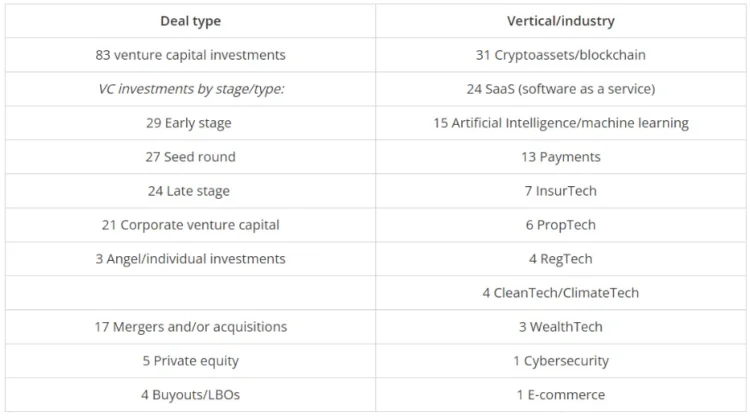The number of investments in crypto and blockchain technology dominated the financial technology sector in Canada for the second year in a row, according to a report by the accountancy firm KPMG.

KPMG published a report on Canadian fintech on February 6, emphasizing that despite substantial declines in transaction volumes and values in 2023, cryptocurrencies continue to dominate the rankings.
According to data from KPMG, the blockchain and cryptocurrency space closed 31 transactions in the previous year, more than any other fintech vertical. Following closely behind with 24 transactions was the software-as-a-service (SaaS) sector, with 15 deals occurring in the artificial intelligence (AI) and machine learning industry.

Preparation for the United States Securities and Exchange Commission’s (SEC) approval of spot Bitcoin exchange-traded funds (ETFs), according to KPMG partner Edith Hitt in the report, contributed to investor interest in fintech projects related to cryptocurrencies. Hitt elaborated:
“U.S. approval of a Bitcoin ETF could stimulate new technological developments in the digital assets space and encourage greater investment in Canadian fintechs.”
Additionally, according to the executive, one of the most significant fintech investments in Canada in 2023 was in a blockchain infrastructure company.
Hitt interprets this as an indication of the region’s increasing interest in the technology. According to Hitt, a central bank digital currency (CBDC) could potentially materialize in Canada, who further stated that investors may be “planning ahead.”
According to Hitt, blockchain technology could “potentially” serve as the underlying infrastructure required to operate a CBDC in Canada. According to the executive, this could be an additional development driver for the Canadian fintech ecosystem.
Even though Hitt alluded to the possibility of a CBDC, questions remain regarding its adoption in Canada. The Bank of Canada concluded in August 2023 in a discussion paper that adopting a CBDC within the nation could present challenges. According to the central bank, consumers would have a “weak incentive” to use a CBDC because they have no barriers to financial services.
On November 30, a survey confirmed the hypothesis put forth by the central bank. According to the central bank’s analysis of the survey results, individuals who were aware of CBDCs exhibited a greater reluctance to utilize the technology than those who were not.
